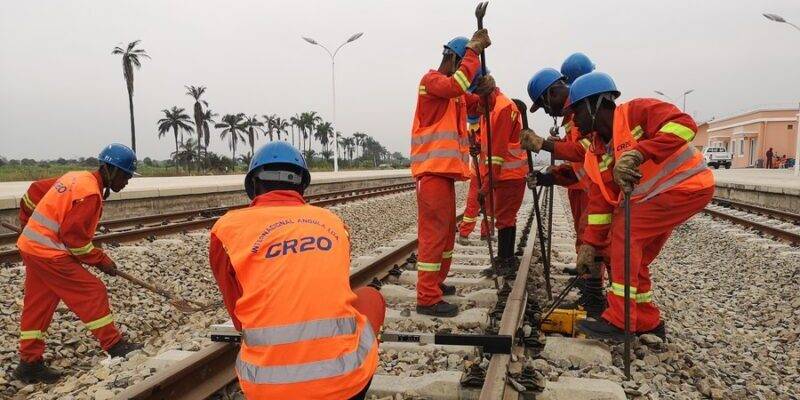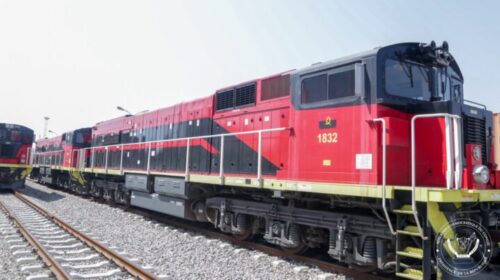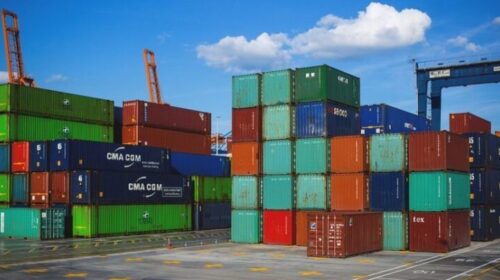Top 5 Rail Projects to Watch in Africa
Positive GDP growth, new energy and mining developments, and growing competitiveness of regional supply chains have resulted in surging demand for the development of Africa’s railway sector.
As the continent undergoes unprecedented economic development – driven by fast-growing populations and rapid urbanization – Africa’s transport industry is poised to expand and support trade activities, while reducing carbon emissions and lowering transport costs.
Accordingly, several African countries have partnered with international financial and development institutions in recent years with the objective of attracting finance to invest in enhanced rail infrastructure throughout the continent – below are the top five projects to watch.
Lobito Corridor Trade Facilitation Project
With a planned completion for May 2024, the Lobito Trade Facilitation Project will connect Angola, Zambia and the Democratic Republic of the Congo (DRC) through the construction of approximately 1,344km of rail line.
The project is poised to accelerate the growth of both domestic and cross-border trade among the three countries, while fostering the participation of small- and medium-sized enterprises in international value chains.
The corridor will connect Angola’s provinces of Benguela, Huambo, Bié and Moxico to the DRC’s mining provinces of Tanganyika, Haut-Lomami, Lualaba and Haut-Katanga and the Zambian Copper Belt.
Last October, the African Development Bank (AfDB) signed a Memorandum of Understanding with the U.S. Government, European Commission, Africa Finance Corporation and respective African host governments, joining global partners to mobilize resources for the project and outlining partner efforts to collaborate across multiple sectors.
Trans-Kalahari Railway
Scheduled to start operations in January 2025, the 1,500km Trans-Kalahari Railway will run from the village of Rasesa in the Kgatleng District of Botswana, through Namibia’s capital of Windhoek to the city of Walvis Bay in the Erongo Region.
Poised to facilitate the transportation of 14 million tons of coal and copper annually, the project will establish a vital link connecting the southern African countries.
The Trans-Kalahari Railway will also carry the potential to increase freight volumes to 56 million tons per year by its 30th year of service, facilitating the export and import of fuel and other commodities to and from international markets.
Afrail Express
Serving as the flagship development between rail development and financing company, Afrailways, and industrial company, Groot Suisse Industries, the Afrail Express is a high-speed passenger rail system envisaged to connect the entire African continent.
With construction due to begin in May 2024 at multiple sites in different countries, phase one of the project will connect Cape Town, South Africa to Casablanca, Morocco via the cities of Windhoek, Namibia; Luanda, Angola; Lusaka, Zambia; Kinshasa, DRC; Lagos, Nigeria; and Dakar, Senegal.
The rail system will then travel from Casablanca to Cairo, Egypt via Tripoli, Libya, and then from Cairo to Cape Town via Nairobi, Kenya; Kigali, Rwanda; Harare, Zimbabwe; and Johannesburg, South Africa.
At a cost of $90 billion, the project is poised to result in over 50 million job opportunities across the continent, with the possibility to contribute over five trillion dollars to the African GDP.
Ethiopia-Sudan Railway
In June 2022, the governments of Ethiopia and Sudan completed bilateral agreements that involved the joint development of a railway line linking Ethiopia’s capital city of Addis Ababa to Sudan’s capital city of Khartoum and extending to the city of Port Sudan on the Red Sea.
With a total estimated distance of 1,522km and at an estimated cost of $3.4 million, the railway will follow the Awash-Kombolcha-Weldiya and Wereta-Gonder-Materma-Galabat-Gadarif-Kassala-Haiya railways lines, serving to reduce Ethiopia’s dependence on the Port of Djibouti, while strengthening economic ties between the two East African countries.
SADC Trade and Transit Facilitation Project
Set to facilitate the movement of goods and people along the Angolan North-South Corridor of the Southern African Development Community (SADC), the SADC Trade and Transit Facilitation Project will enhance trade and transportation on major corridors in southern Africa.
The project was approved by the AfDB last May and is planned for completion by December 2026. The SADC Trade and Transit Facilitation Project is expected to improve sustainable sanitation services in Angola’s coastal towns of Benguela, Baía Farta, Catumbela and Lobito, while strengthening the economic capacities of local communities and public and private service providers.
84 total views , 1 views today





